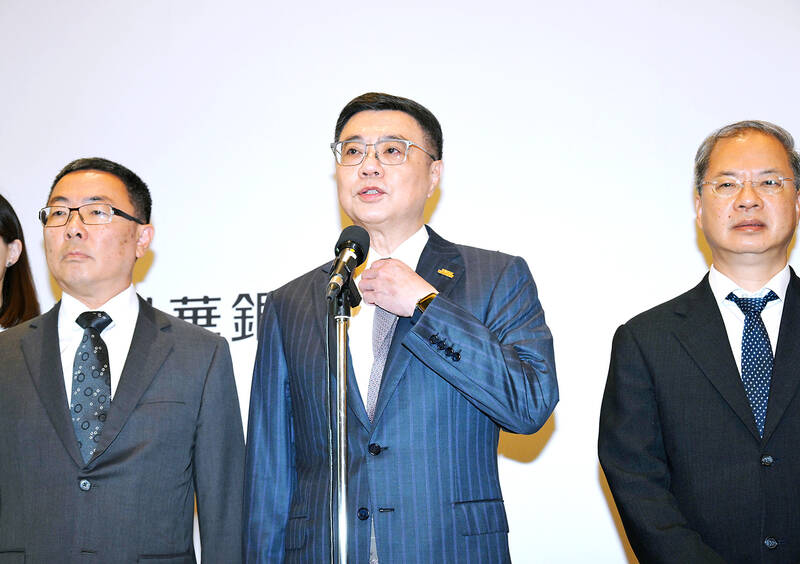Premier Cho Jung-tai (卓榮泰) yesterday said the government would promptly review several incidents of Chinese illegally entering the country by boat, vowing to safeguard the nation’s security.
Cho’s comments came after a Chinese man was on Saturday found in a rubber boat at the estuary of Houkeng River (後坑溪) near Taiping Borough (太平) in New Taipei City’s Linkou District (林口), following a similar incident in June.
“We have already been reviewing some cases in the past and this incident has made us feel that we must speed up” those reviews, Cho said.

Photo: Fang Pin-chao, Taipei Times
“I can promise that safeguarding national security is the unshakable responsibility of the government. We must quickly review these incidents and make appropriate preparations,” he added.
The Coast Guard Administration (CGA) said the New Taipei City Fire Department early on Saturday notified it that a man was spotted near the estuary, about 100m from the shore.
Coast guard personnel pulled the man ashore and sent him to a hospital for treatment for severe dehydration.
The man — who the coast guard said claimed he “has debts in China and wants to start a new life in Taiwan” — was later detained for attempting to enter Taiwan without permission.
Last month, Taiwanese prosecutors indicted a former Chinese naval captain who was arrested for illegally entering Taiwan by boat.
However, they said that “no military or national security involvement” was linked to the incident.
The CGA picked him up in June after his vessel collided with other boats on the Tamsui River (淡水河), which flows from Taipei to the northern coast.
Chinese Nationalist Party (KMT) caucus secretary-general Lin Szu-ming (林思銘) yesterday said that the CGA was slow to react in both incidents.
He also accused Ocean Affairs Council Minister Kuan Bi-ling (管碧玲) of failing to put forth concrete solutions to secure the coast.
In response to Kuan’s earlier statement that there was no human error in the case, Lin said the CGA needed to purchase more advanced equipment for surveillance and reconnaissance.
A lack of equipment had already been discussed before, but the council did nothing about it, he said.
Democratic Progressive Party (DPP) caucus secretary-general Rosalia Wu (吳思瑤) yesterday said that Saturday’s case was the second such incident since President William Lai’s (賴清德) administration took office in May, and should be taken seriously no matter what the true intentions were of the people on the boats.
Regarding national security, the possibility of China deliberately testing Taiwan’s coastal defense and emergency response capabilities through “gray zone” tactics cannot be excluded, she said.
Countermeasures at a high national security level should be taken to enhance coastal defense, such as installing infrared thermographic cameras or increasing coastal patrols, Wu said.
DPP Legislator Lai Jui-lung (賴瑞隆) said that Beijing has been testing Taiwan’s national security and cohesion by any means, as well as the Lai administration’s boundaries and ability to cope with such incidents.
National security, national defense and coast guard agencies should be more careful, as China is gauging Taiwan’s response capabilities, stirring up turmoil and adding national security pressures on the nation, he said, urging Taiwanese to remain united against China’s polarization strategy.
Additional reporting by CNA

CHAOS: Iranians took to the streets playing celebratory music after reports of Khamenei’s death on Saturday, while mourners also gathered in Tehran yesterday Iranian Supreme Leader Ayatollah Ali Khamenei was killed in a major attack on Iran launched by Israel and the US, throwing the future of the Islamic republic into doubt and raising the risk of regional instability. Iranian state television and the state-run IRNA news agency announced the 86-year-old’s death early yesterday. US President Donald Trump said it gave Iranians their “greatest chance” to “take back” their country. The announcements came after a joint US and Israeli aerial bombardment that targeted Iranian military and governmental sites. Trump said the “heavy and pinpoint bombing” would continue through the week or as long

TRUST: The KMT said it respected the US’ timing and considerations, and hoped it would continue to honor its commitments to helping Taiwan bolster its defenses and deterrence US President Donald Trump is delaying a multibillion-dollar arms sale to Taiwan to ensure his visit to Beijing is successful, a New York Times report said. The weapons sales package has stalled in the US Department of State, the report said, citing US officials it did not identify. The White House has told agencies not to push forward ahead of Trump’s meeting with Chinese President Xi Jinping (習近平), it said. The two last month held a phone call to discuss trade and geopolitical flashpoints ahead of the summit. Xi raised the Taiwan issue and urged the US to handle arms sales to

State-run CPC Corp, Taiwan (CPC, 台灣中油) yesterday said that it had confirmed on Saturday night with its liquefied natural gas (LNG) and crude oil suppliers that shipments are proceeding as scheduled and that domestic supplies remain unaffected. The CPC yesterday announced the gasoline and diesel prices will rise by NT$0.2 and NT$0.4 per liter, respectively, starting Monday, citing Middle East tensions and blizzards in the eastern United States. CPC also iterated it has been reducing the proportion of crude oil imports from the Middle East and diversifying its supply sources in the past few years in response to geopolitical risks, expanding

Pro-democracy media tycoon Jimmy Lai’s (黎智英) fraud conviction and prison sentence were yesterday overturned by a Hong Kong court, in a surprise legal decision that comes soon after Lai was jailed for 20 years on a separate national security charge. Judges Jeremy Poon (潘兆初), Anthea Pang (彭寶琴) and Derek Pang (彭偉昌) said in the judgement that they allowed the appeal from Lai, and another defendant in the case, to proceed, as a lower court judge had “erred.” “The Court of Appeal gave them leave to appeal against their conviction, allowed their appeals, quashed the convictions and set aside the sentences,” the judges